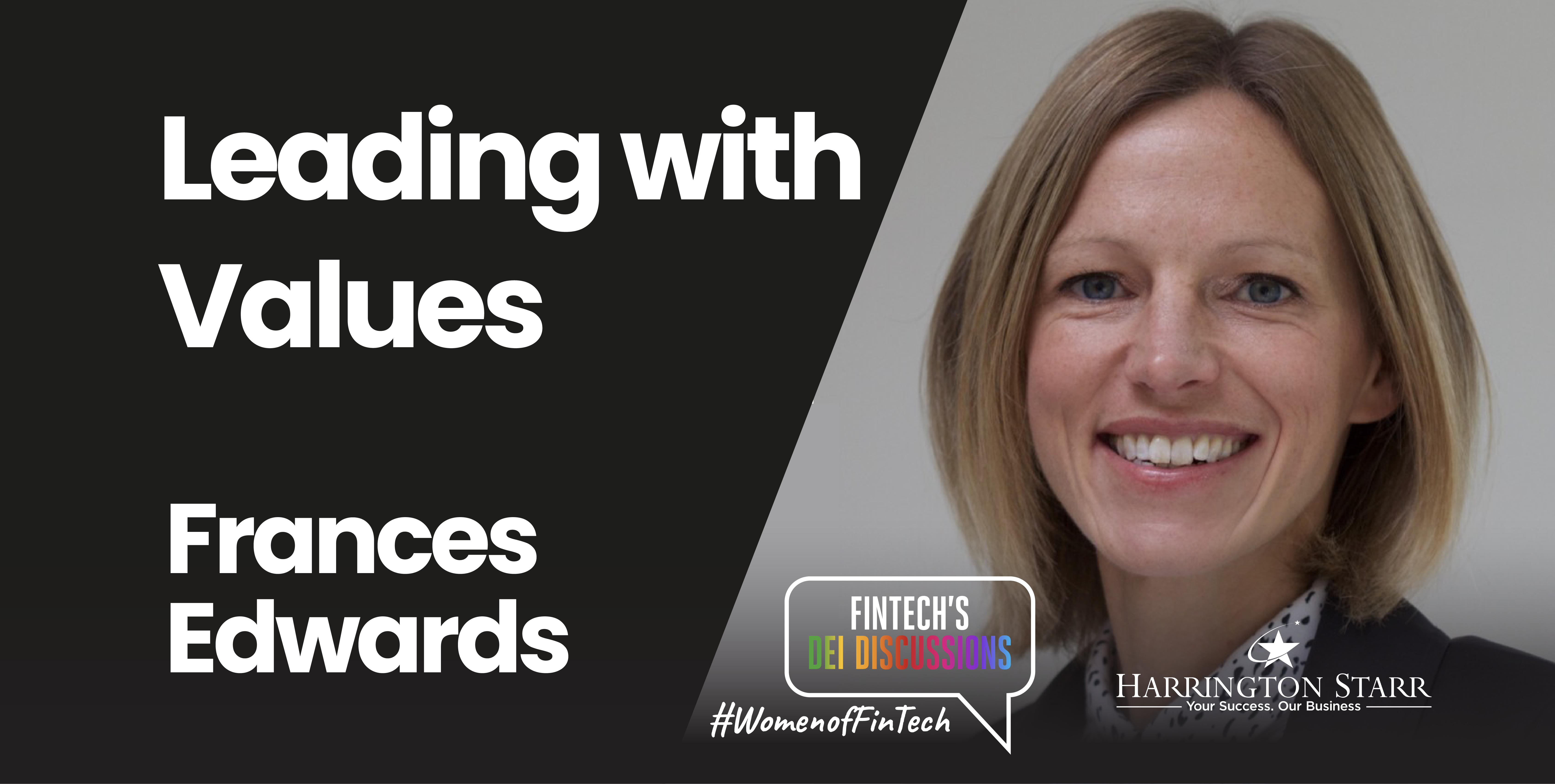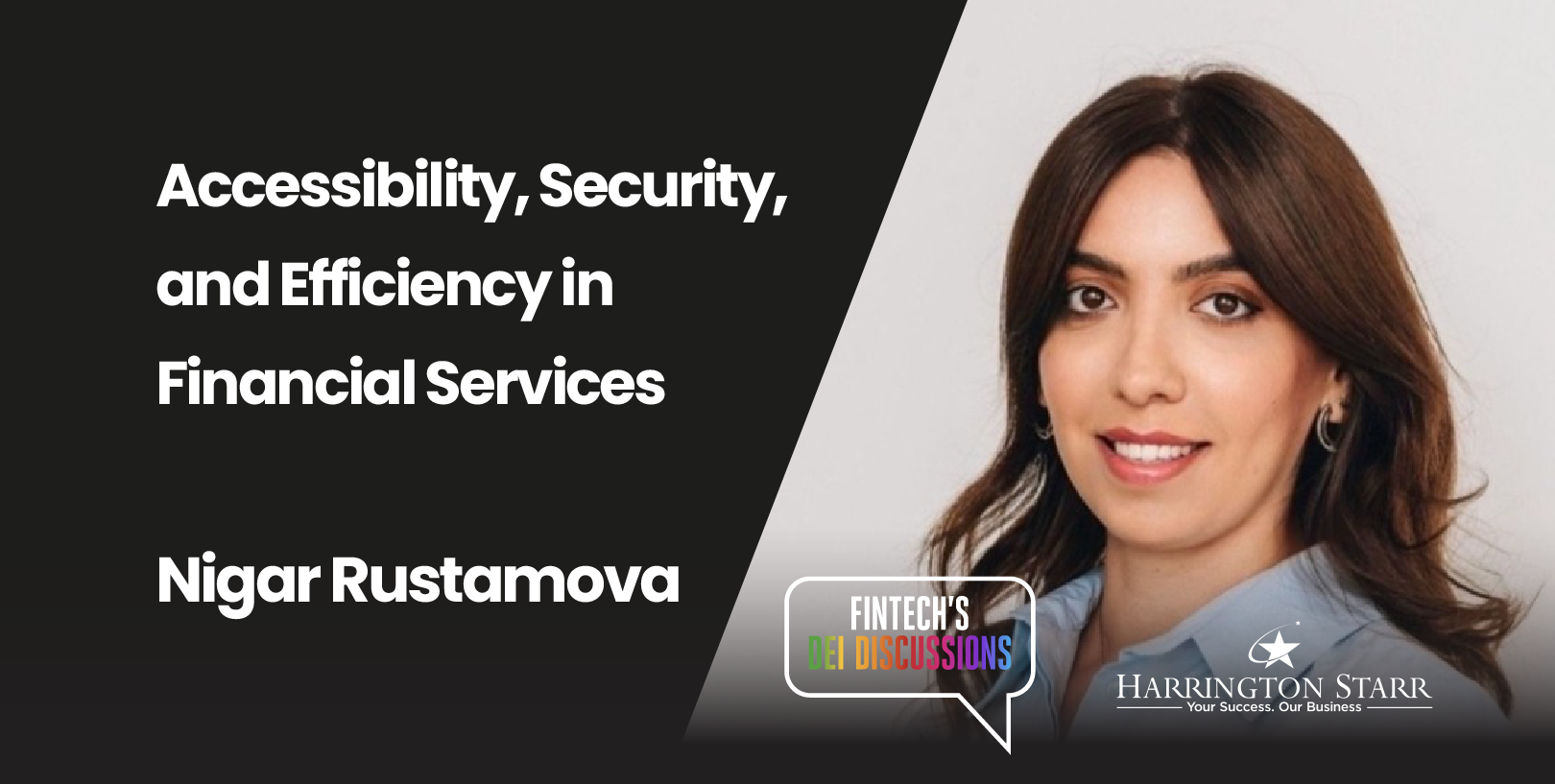
In the rapidly evolving landscape of financial technology, or FinTech, the pursuit of a fulfilling career can be both exciting and daunting. This sentiment resonates deeply with Frances Edwards, COO and Global FinTech Operator, who recently shared her rich experiences and invaluable advice on an episode of FinTech's DEI Discussions hosted by Nadia. Frances’s journey, marked by significant pivots and a steadfast commitment to her values, offers a compelling roadmap for those navigating the world of FinTech recruitment, careers, and the challenges that come with them.
The Evolution of FinTech Careers: A Journey Through Change
Frances Edwards’s career is a testament to the nonlinear paths that many professionals in the FinTech industry traverse. With over 20 years of experience, Frances has seen the industry transform through various phases of innovation, crisis, and opportunity. Her journey began during the dot-com boom, interning at a tech company in France—a time marked by big budgets and extensive travel. However, the subsequent downturn in 2002 led her to Barclays, where she undertook a variety of roles, from private banking to structured products. This experience laid a strong foundation for her understanding of both traditional financial services and the burgeoning FinTech sector.
Frances’s transition into FinTech was not just a career shift but a conscious decision to embrace change and innovation. Moving from established financial institutions like Barclays and BlackRock to a Series A startup required a leap of faith, backed by her belief in her ability to adapt and innovate. This transition underscores a crucial aspect of FinTech careers: the need for professionals to remain agile, ready to pivot when opportunities arise, and confident in their ability to transfer skills across different environments.
FinTech Recruitment: The Role of Values in Leadership
In discussing her career trajectory, Frances emphasises the importance of values-based leadership in FinTech recruitment and career development. As a leader, she identifies strongly with values such as trust, transparency, integrity, and accountability—principles that have guided her in every role. For those aspiring to succeed in FinTech jobs, she advises a similar approach: understand your core values, let them guide your decisions, and don’t allow your current role or company to define your entire career.
Frances’s journey also highlights the critical role that FinTech recruiters and recruitment agencies play in identifying and placing talent that aligns with the fast-paced and innovative nature of the industry. As FinTech companies often require a unique blend of skills—ranging from technical expertise to innovative thinking and adaptability—recruiters must look beyond traditional qualifications. Instead, they should focus on candidates who demonstrate a strong alignment with the company’s values and a willingness to navigate the complexities of the industry.
Moving from Traditional Finance to FinTech
Frances’s move from traditional finance to FinTech and crypto was a significant pivot that required not only confidence but also a deep understanding of the industry’s demands. Her experience at BlackRock, where she shifted from structured products to broader COO responsibilities, equipped her with the skills needed to thrive in a startup environment. This transition illustrates a broader trend in FinTech recruitment, where professionals are increasingly moving from large financial institutions to smaller, more agile companies.
For those considering a similar move, Frances’s advice is clear: have confidence in your abilities and be prepared for a steep learning curve. FinTech jobs, especially in startups, often involve working with limited resources and making decisions without the extensive data and support available in larger organisations. The ability to prioritise and focus on a few core objectives is essential, as is the willingness to embrace a more hands-on, pragmatic approach to business operations.
The Importance of Effective Management in FinTech Careers
One of the key insights Frances shared during the podcast is the distinction between management and leadership—a topic of particular relevance to FinTech careers. In today’s dynamic and often uncertain environment, the ability to manage effectively is just as important as the ability to lead. Frances challenges the notion that management is synonymous with micromanagement and control, advocating instead for a model where leaders are also competent managers.
This perspective is particularly important in FinTech recruitment, where companies often operate with lean teams and require leaders who can both strategise and execute. For those in FinTech jobs, this means developing skills in both areas—being able to guide teams towards shared objectives while also nurturing talent and fostering collaboration. Effective management, according to Frances, is about empowering individuals to work cohesively towards a common goal, which is crucial in the fast-paced world of FinTech.
Building Inclusive Workplaces in FinTech: The Role of Leadership
Inclusivity is a cornerstone of Frances’s leadership philosophy, and it’s an area she believes needs more attention in the FinTech industry. Drawing on her own experiences, she emphasises the importance of creating psychological safety within teams—a factor that she considers paramount for fostering inclusion. For Frances, inclusion is not just about formal policies but also about understanding and aligning both the formal and informal cultures within an organisation.
For those in FinTech recruitment agencies and hiring roles, this insight is crucial. When sourcing talent, it’s important to consider not only the technical skills and experience but also how candidates will contribute to and shape the company’s culture. Creating an inclusive environment where everyone feels valued and safe to express their ideas can lead to greater innovation and success in the industry.
Advice for Aspiring FinTech Professionals
Frances’s final piece of advice to those looking to progress within the FinTech industry is to be proactive in managing their careers. This includes understanding your values, building financial independence, and being prepared to pivot when necessary. She also stresses the importance of continuous learning and self-improvement—traits that are essential in an industry as fast-moving as FinTech.
For FinTech recruiters, this means identifying candidates who not only have the necessary skills but also the right mindset for growth and adaptability. FinTech careers are often characterised by rapid change and uncertainty, so it’s important to find professionals who are not only capable of navigating this environment but also thrive in it.
Conclusion
Frances Edwards’s journey through the FinTech industry provides a wealth of insights for anyone looking to build a career in this dynamic field. From understanding the importance of values-based leadership to navigating the challenges of transitioning from traditional finance to FinTech, her experiences offer valuable lessons for both professionals and recruiters alike.
As the FinTech industry continues to evolve, the need for skilled, adaptable, and values-driven professionals will only grow. Whether you’re an aspiring FinTech professional or a recruiter looking to place top talent, the key to success lies in understanding the unique demands of the industry and being prepared to meet them head-on. In the words of Frances Edwards, actions speak louder than words—so let’s walk the talk in our pursuit of a more inclusive, innovative, and dynamic FinTech industry.





